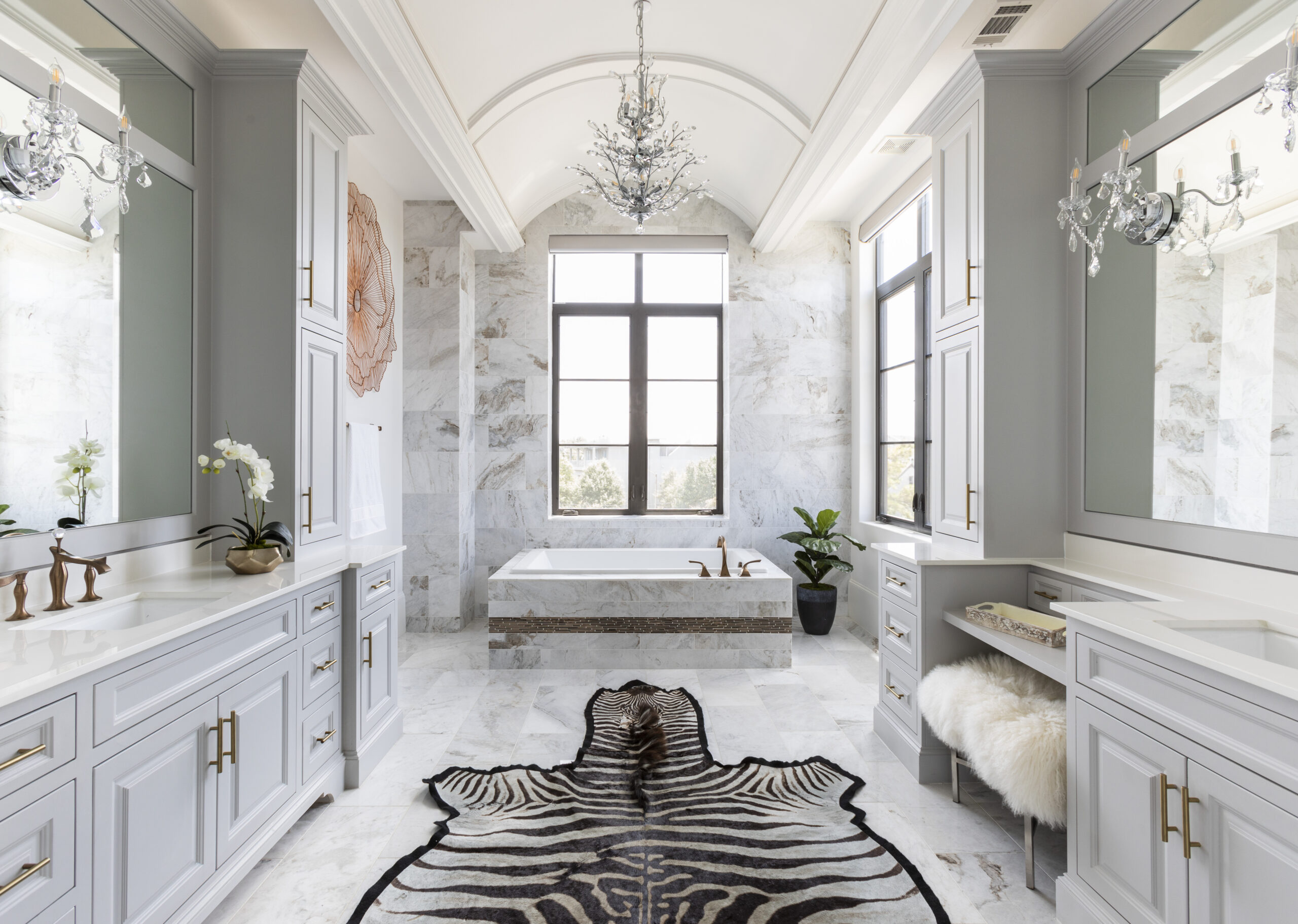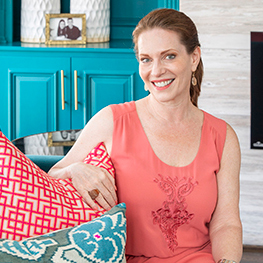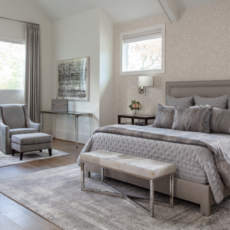When it comes to our homes, we sometimes feel like the grass may be greener on the other side. Well, take it from our team of Houston interior designers — the grass is greener where you water it! If you want to upgrade your living situation, you have a choice: home renovation vs. move. Each option involves a significant financial commitment, time, and effort and comes with its own set of advantages and drawbacks.
While it may be tempting to pack up and move somewhere new, it may not be the best financial decision. If your home has good bones and you love your neighborhood, renovating and expanding upon your investment may be more advantageous than jumping ship. Our design team reviews the pros and cons of home renovation vs. mortgage to help you make an informed decision that aligns with your financial goals and lifestyle.
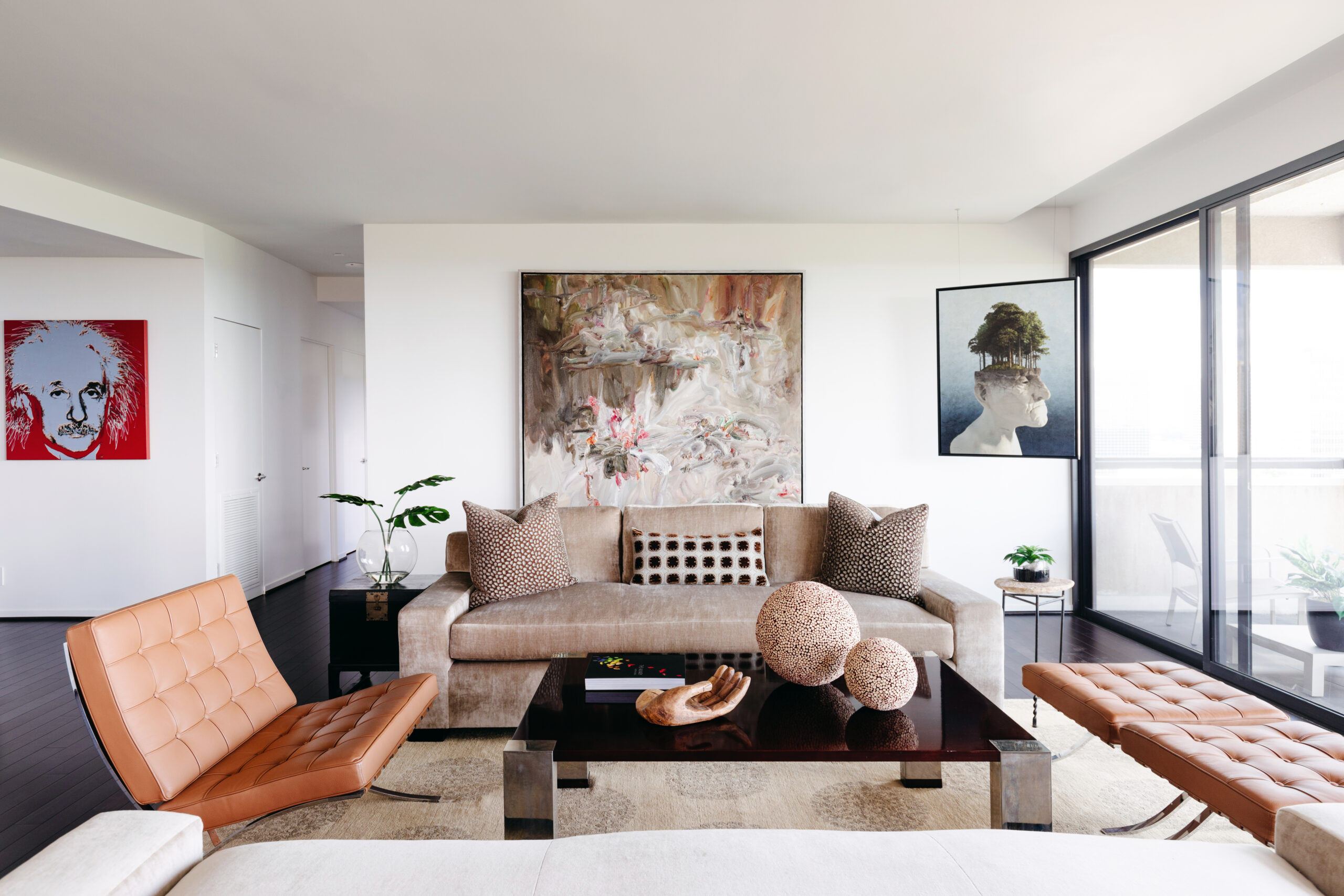
The Pros and Cons of Planning a Home Renovation
A home renovation involves enhancing or modifying your existing property to suit your needs and preferences better. Below are some of the most considerable pros and cons of starting a home renovation project.
The Pros of a Home Renovation
Customization
The beauty of renovating the home that you currently live in is that you have the opportunity to upgrade the spaces that you already know and love. Renovating allows you to customize your home according to your tastes and lifestyle. Whether updating your kitchen, adding a new room, or creating an outdoor living space, you can tailor the renovation to your specific needs and style.
Cost Control
On average, Americans spend $22,000 on a single interior home renovation project, with larger gut remodels spanning anywhere from $100,000 and upwards. At Pamela Hope Designs, many of our projects start at $75,000 and go up from there. As with anything, this cost varies drastically depending on the type of project and scope. However, the price of a renovation will almost always be less than the purchase of a new home. Renovations can cost anywhere between $10 – $60 per square foot, whereas the average price of a home in the United States is now around $222 per square foot. (Not to mention the rising interest rates!) Many of our custom builders are quoting $300+ per square foot so the cost of new construction can also be significant.
In the real estate world, demand drives the price, which leaves active buyers with little control unless they want to sacrifice space, location, or updates. A renovation guided by an experienced designer gives you more power over your investment, allowing you to choose the project scope, materials, and budget.
Emotional Attachment
Homeowners have a deep emotional attachment to their properties — we get it! Whether it’s the memories associated with the space or the sense of belonging in the neighborhood, many families want to continue blooming where they’re planted. There’s no need to say goodbye to your favorite local spots and routines if you don’t want to. Renovating allows you to preserve these sentimental connections while upgrading your space. Whether you’re looking to expand your family or prepare your home for aging in place, a renovation can accommodate the necessary adjustments for your next stage in life.
Increased Property Value
This is a big one! Strategic renovations can significantly increase the resale value of your home. Improvements such as kitchen upgrades, bathroom remodels, and energy-efficient enhancements not only enhance your quality of life but also attract potential buyers if you decide to sell in the future. Rather than taking on a significant expense and committing to a high-interest rate with a new property, it can be highly beneficial to stay put and upgrade the value of your current home with renovation projects.
Did we mention that a home renovation immediately increases your home value? When purchasing a new home, it takes time (years!) for that value to go up with the market. With a well-done and tasteful renovation, the home’s value rises upon completion.
The Cons Of A Home Renovation
Disruption and Inconvenience
It’s no secret that home renovations can severely disrupt your daily routine and lifestyle, especially if major structural changes are involved. Noise, dust, and temporary inconvenience may be unavoidable during renovation, requiring careful planning and patience.
Time Constraints
Depending on the scope of any renovation, the project timeline can extend from weeks to months. Taking a home renovation project on yourself can cause unavoidable delays, from permitting backlogs to inefficient contractor scheduling. However, hiring an experienced team of interior designers can help alleviate those unnecessary stressors and make the process smooth and efficient. Just remember to set realistic expectations on how quickly the work can be completed.
Aesthetics vs. Function
Purely decorative design projects don’t address underlying home issues such as inadequate space or an unfavorable floor plan. In these cases, we recommend gutting your home and taking it down to the studs. A down-to-the-studs renovation is no easy task, but it can completely transform your home and how you live. Almost anything is possible, from reworking a kitchen floor plan to adding a second story! With an expert team, it can be one of the most exciting and satisfying projects for homeowners who want a new space but don’t want to leave their area.
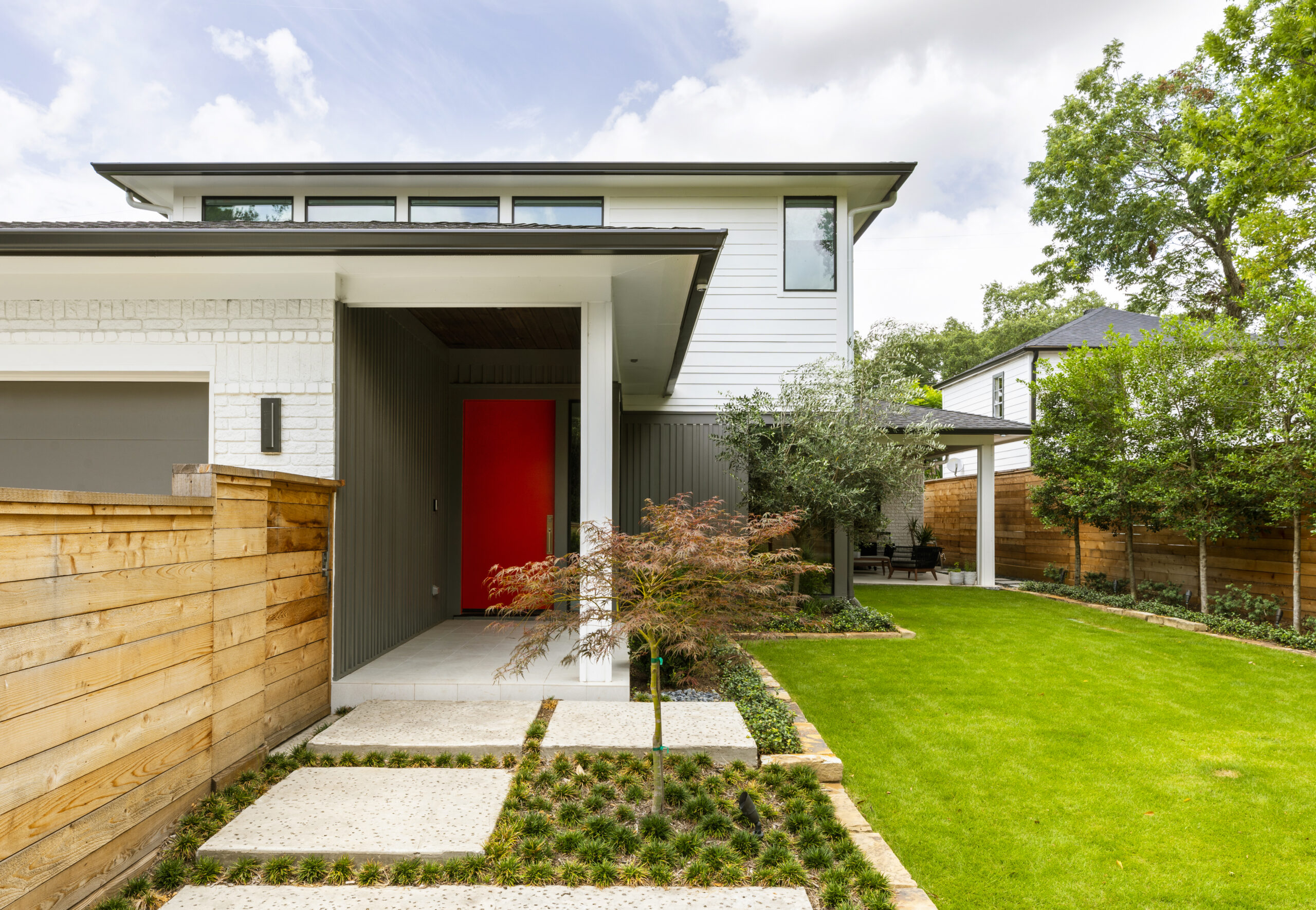
Pros and Cons of Moving (and Perhaps Taking on a Mortgage)
Deciding to move or build allows you to look for or design a home that meets your current and future needs. Let’s examine the pros and cons of this approach.
The Pros of Purchasing a Home
Immediate Gratification
Purchasing a new home provides (almost) immediate gratification, allowing you to move into a space that fits your lifestyle without the need for extensive renovations. This can be particularly appealing if you’re seeking a fresh start or upgrading to a larger property. By settling into a new home, you can enjoy all the benefits of a new space without dealing with the not-so-glamorous part of the renovation process.
Potential Appreciation
Real estate has historically been a reliable investment, with properties often appreciating over time. One of the main reasons to purchase a home is that you will have the opportunity to build equity and benefit from potential appreciation in the housing market.
That said, it’s important to note that this gain in appreciation will not happen overnight. In today’s market, it takes at least five years for homeowners to earn their money back from just the closing costs and interest rates. Obviously, this varies drastically depending on one’s city and purchase price. But remember, a new home is a long-term investment and commitment.
Tax Benefits
Homeownership comes with various tax advantages, including deductions for mortgage interest, property taxes, and eligible home improvements. These deductions can result in significant savings and contribute to your overall financial well-being.
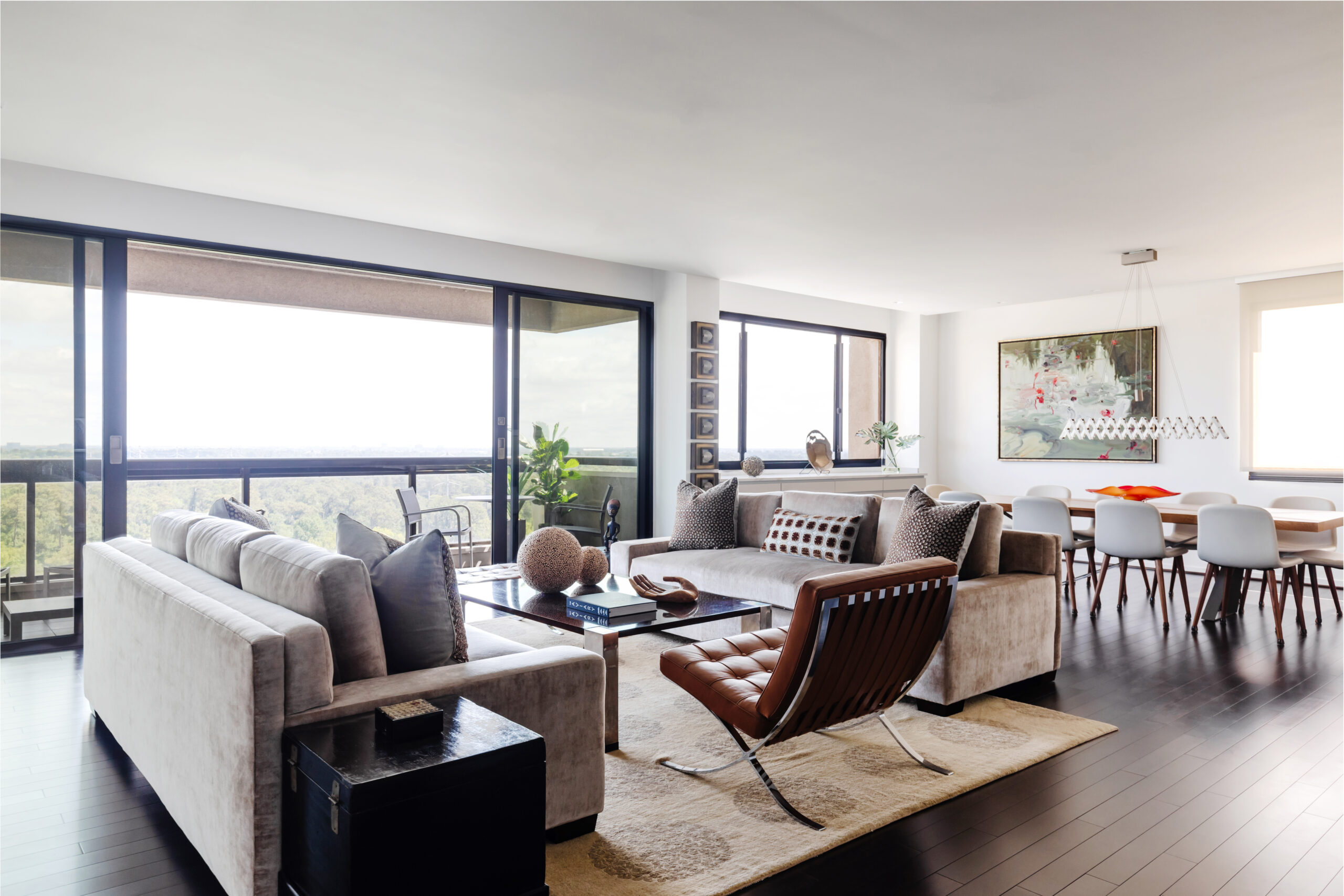
The Cons Of Purchasing A Home
Financial Commitment
Home prices and construction costs have risen significantly. Obtaining a mortgage requires a substantial financial commitment, including a down payment, closing costs, ongoing mortgage payments, and moving costs. Even a simple, local move out of a 3-bedroom home costs just under $5,000. And don’t overlook the high-interest rates! Currently, buyers are looking at a minimum 7% interest rate on home purchases. With this statistic alone, staying put and renovating your current home is likely more affordable.
Market Volatility
The real estate market is subject to fluctuations in supply and demand, interest rates, and economic conditions. While property values may appreciate over time, there’s also the risk of market downturns, which could affect your home’s resale value and overall financial stability. The market’s volatility can affect anyone at any time, but it is a risk to keep in mind when deciding to undertake a new mortgage.
Limited Control
Unlike renovating your existing home, purchasing a new property may limit your ability to customize certain aspects of the space. While cosmetic changes can be made after purchase, structural modifications may require additional permits and approvals, adding complexity and cost to the process.
Additional Expenses
It can be easy to convince yourself that you’ll purchase a new home and not feel the need to renovate it, but sooner than later, you’ll likely want to make some personal tweaks to the space. It’s rare that a person moves into a new home and is happy with exactly how the house is. It is very common for homeowners to want to start adding their personal touches to their homes after living there for a year or so.
This is a future expense to consider when deciding whether to renovate your current home. Would you be better off working with the spaces that you already have?
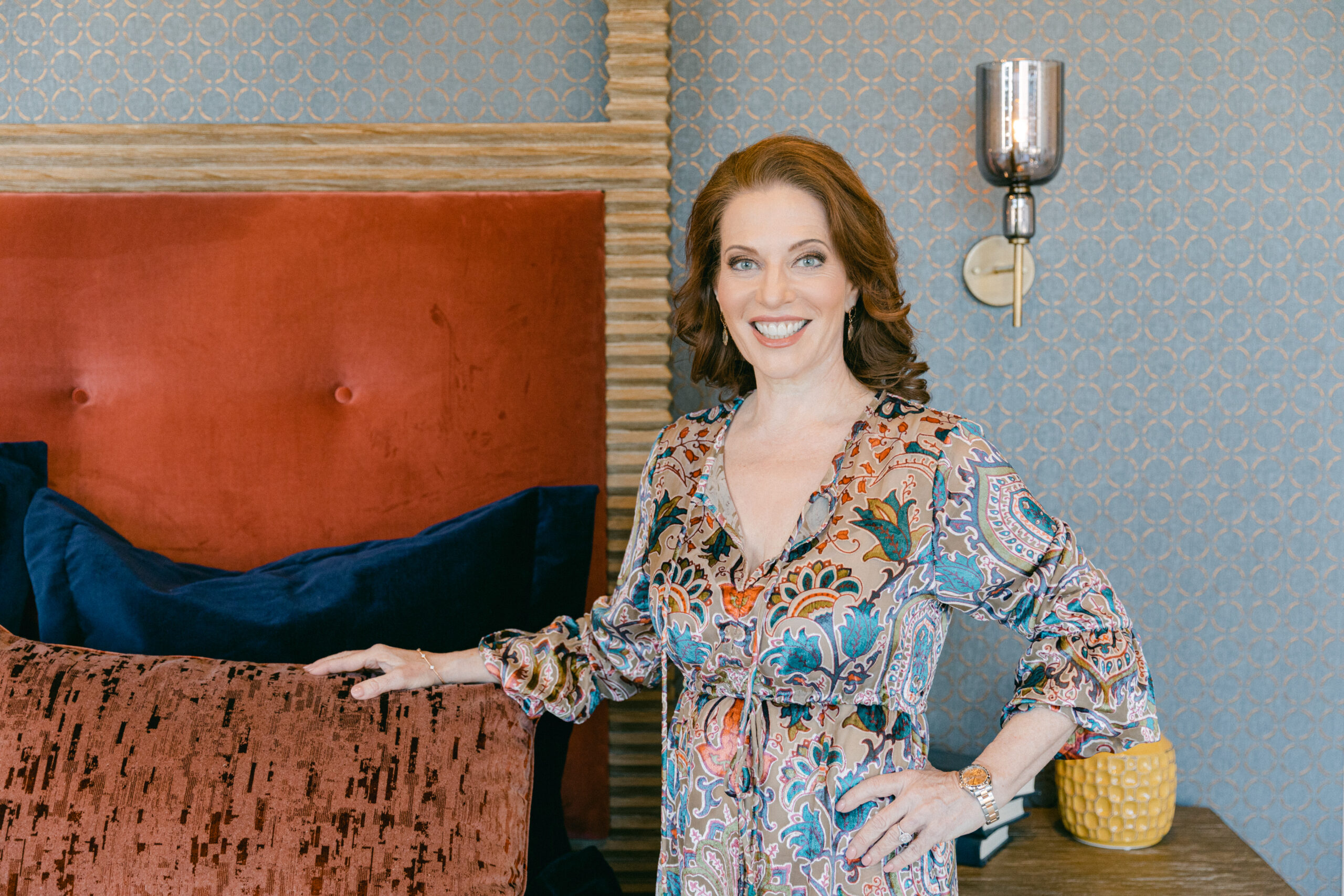
To Renovate Or To Buy?
In weighing the pros and cons of a home renovation vs. moving, it’s essential to consider your financial situation, lifestyle preferences, and long-term goals. Both options offer distinct advantages and challenges, requiring careful consideration and planning before deciding. Conducting thorough research, consulting with the right professionals, and assessing your financial readiness are critical steps in making a well-informed decision.
If you have a strong emotional attachment to your current home and are willing to invest time and resources in renovations, improving your existing property may be the ideal choice. On the other hand, purchasing outright or obtaining a mortgage for a new home may better suit your needs if you’re seeking semi-immediate gratification and a new location. In today’s market, for some clients, we recommend exploring home renovation options to avoid high-interest rates and maximize the investment in the home you already know and love. If it seems like a good solution for you.
So, is it the time to bloom where you’re planted and add almost instant value to your home? Whether you start with one smaller project or take your home down to the studs, consider it a financial investment and an investment in your quality of life.
Or is it time to seek those new pastures and find your dream house? At Pamela Hope Designs, we thrive on making your house the best it can be. Whether you choose to stay or go, our team of Houston Interior Designers will be happy to help you on your journey.
Meet Pamela, A Luxury Interior Designer in Houston
Pamela O’Brien is the founder of Pamela Hope Designs in Houston, Texas. Pamela is an award-winning luxury interior designer, writer, and speaker. Prior to founding Pamela Hope Designs, Pamela served as a spokesperson in media and public affairs, working with media outlets like Dateline NBC and 48 Hours. This experience allowed her to travel the world and furthered her love for travel, culture, and interior design. After going back to school to pursue interior design at the Harvard Graduate School of Design, Pamela launched her own interior design firm. Pamela is known for building strong relationships with her clients, who later become friends and collaborators. She is highly influential in the Houston interior design space and shows no signs of slowing down.
